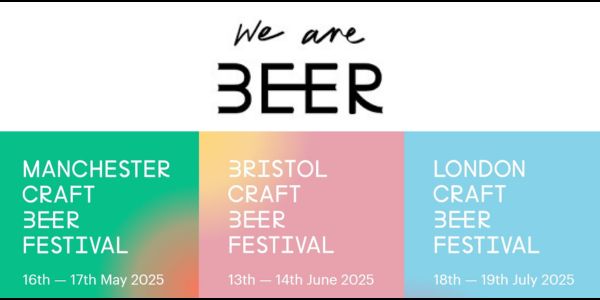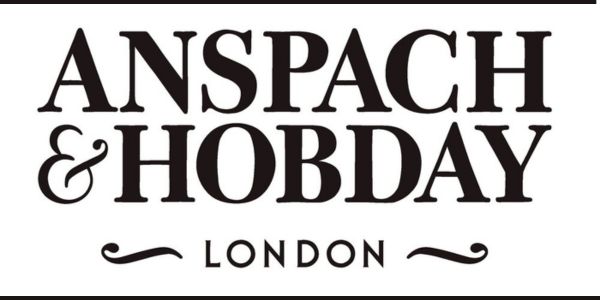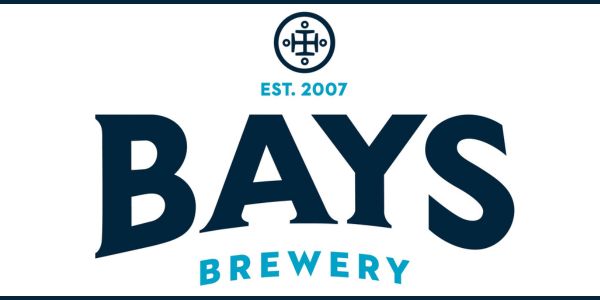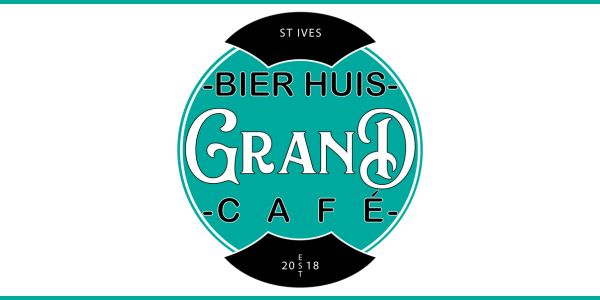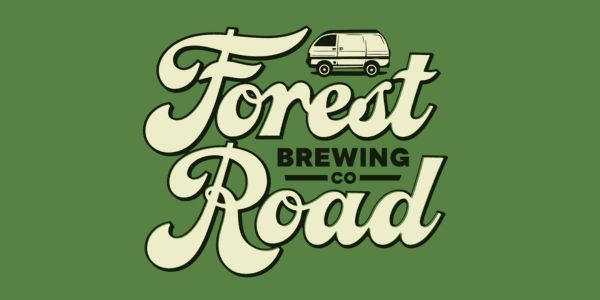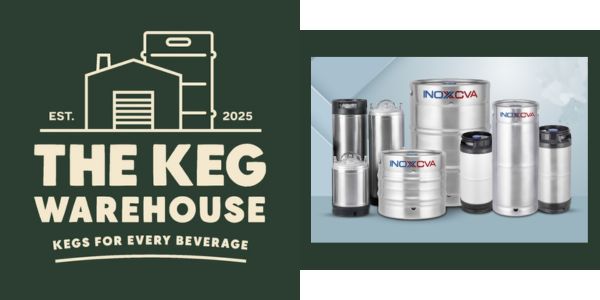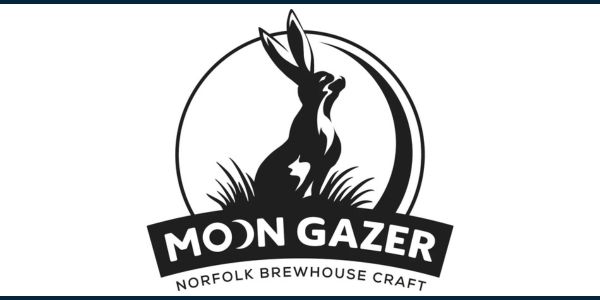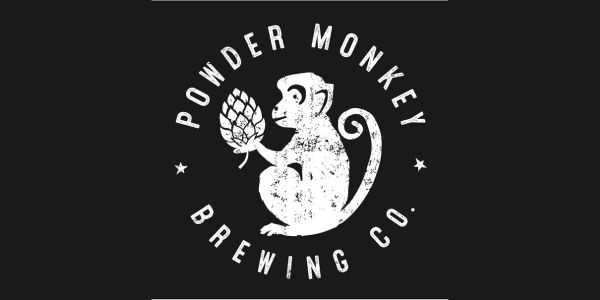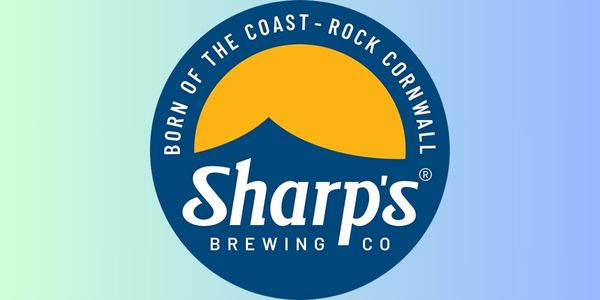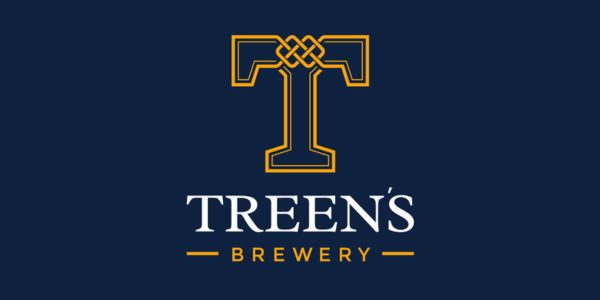Lotte Peplow, the American craft beer ambassador for Europe for the Brewers Association, looks into the world of transatlantic brewing collaborations.
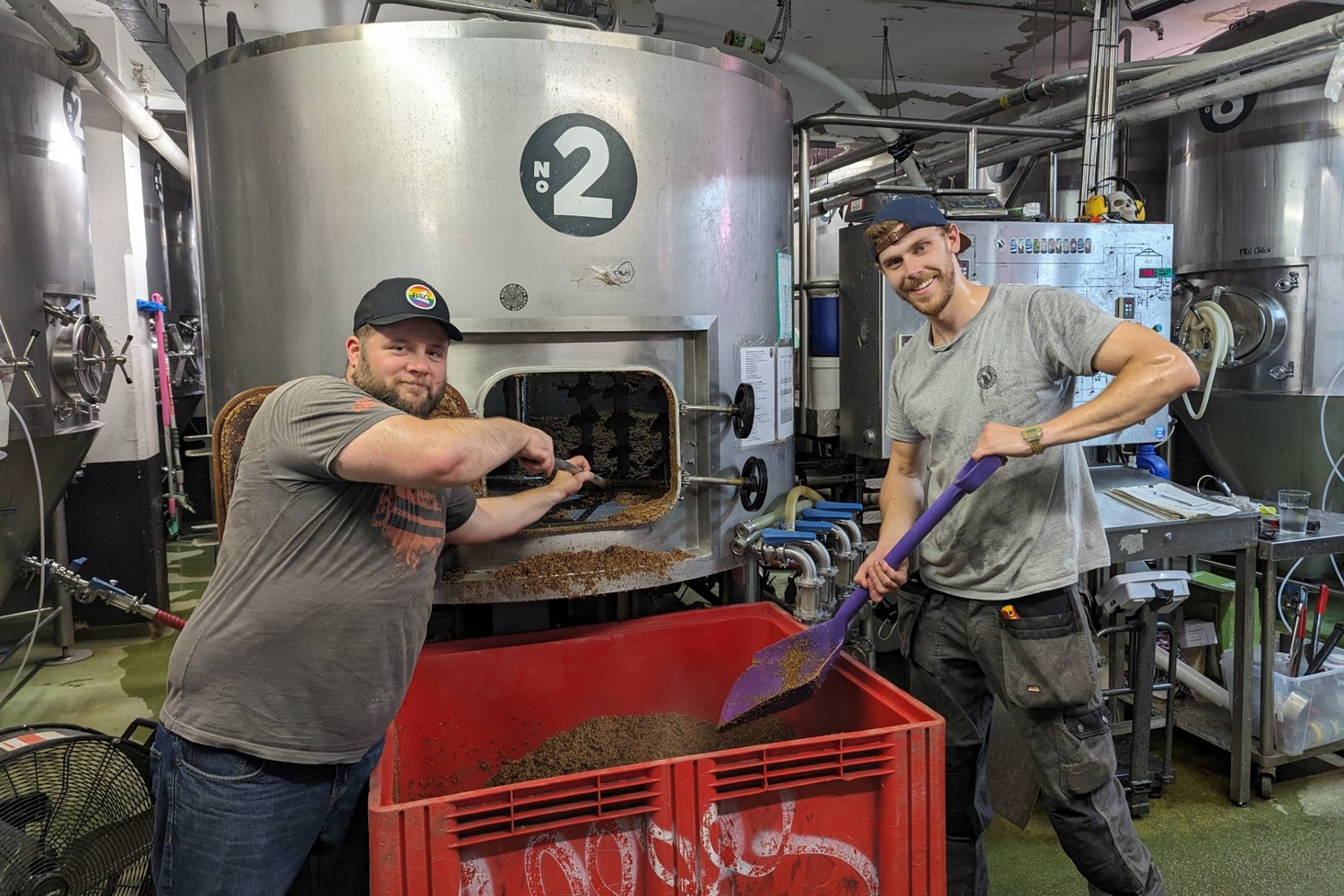
Alex Spencer, of DC Brau Brewing Co, with collaboration host Sam Wright, of Howling Hops
Collaboration brewing has fast become a hallmark of American craft beer culture. It’s an opportunity for breweries around the world to come together and create unique and innovative new beers. They also learn and discover from each other, foster a sense of community, and build brand awareness.
The results are often one-off brews that showcase the skills and talents of both parties. They use unique ingredients or flavour combinations, different brewing techniques, and new ways of pushing the envelope in order to craft innovative beers.
Back in the 1980s, American craft brewers pioneered the craft beer world that we see today with their groundbreaking flavours, brewing techniques, and ‘can-do’ attitude. Collaborative brewing takes these approaches and doubles them to the benefit of both the brewery and the beer drinker. Last summer, seven American craft brewers travelled to the
UK to brew collaboration beers.
Why collaboration beers are worth seeking out
Innovation and creativity
American craft brewers are renowned for pushing the envelope. By partnering with other like-minded brewers they combine perspectives, talents, and flavours to challenge the status quo and create original, one-of-a-kind brews. Such innovation and creativity has helped maintain American craft brewers’ global reputation as leading-edge trailblazers. The fact that American craft brewers regularly gain top honours for their beers in international beer competitions is testament to the brewing skills and precision of the brewers.
Learning and discovery
Collaboration brewing is a good way to share knowledge and learn from other brewers. Last year, Alex Spencer, head brewer at DC Brau Brewing Co, Washington DC, visited London to brew an American brown ale with Sam Wright, head brewer at Howling Hops, in Hackney Wick. Later that year, Sam made the return trip to DC to brew a hazy IPA with
DC Brau.
“Collab brewing is a blast!,” said Alex. “It’s a good way to brew beers we might not normally do, like our American brown ale with Howling Hops, and to discuss various techniques and the differences in our brewing processes. In the hashing out of recipes we can learn things from each other’s experiences.”
Sam said: “There are a few differences I noticed between US and UK brewers. When talking about recipes we constantly need to translate from imperial versus metric units, and subtle nuances like that, and it’s more common for American breweries to receive their malt unmilled and have to mill it themselves. DC Brau has their own mill and this extra process step and control is not something we see in small UK breweries. Conveniently, lots of roasted malts are both malted and milled locally to London, England, so the American brown ale we brewed was a showcase of UK malts.
“We generally have access to some of the same types of ingredients as US craft breweries such as DC Brau (eg hops — which the whole world seems to source from the Yakima Valley, Washington). But they’re buying yeasts from specific yeast labs to which we don’t have access, so the type of yeast is slightly different. Specific equipment like the yeast brink that they use to dose the yeast into the beer is also something I’d never seen before, and this was very helpful.”
Brand building
Taking the outreach and marketing clout of two breweries is greater than one and creates a wider audience. A limited-edition collaboration beer may generate hype and excitement, leading to greater sales and brand engagement. Some breweries collaborate with businesses in different sectors, such as music, coffee or food — another effective means of
expanding an audience.
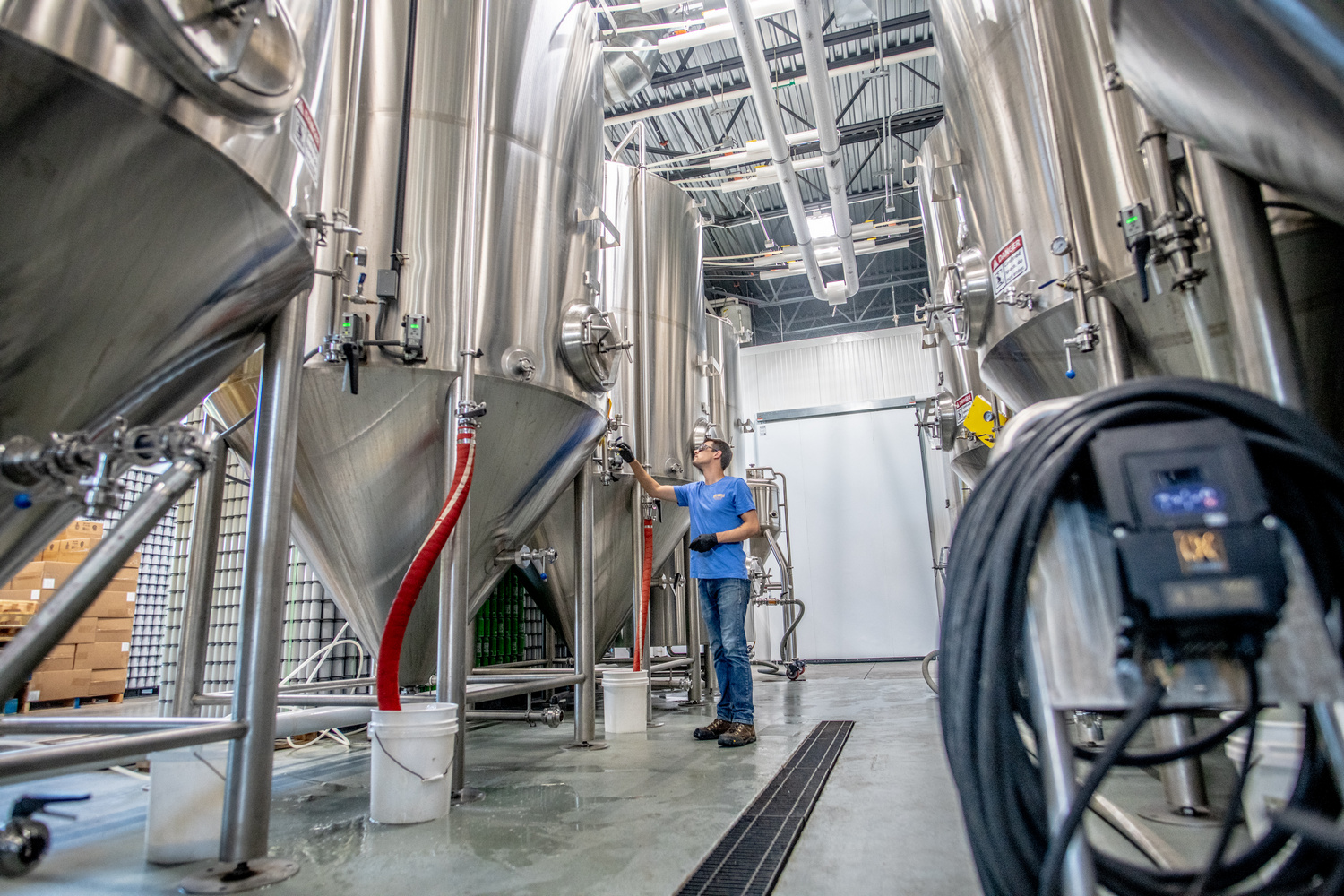
Fostering community
Brewing is a uniquely friendly and collaborative industry where brewers see each other as friends rather than competitors, and everyone is keen to uphold quality and produce the best beer possible. Collab beers are a good way to share a sense of time and place between two breweries, particularly if they are on different continents.
A good example of this was in 2022, when Sierra Nevada Brewing Co collaborated with Adnams to craft a beer in celebration of Adnams’ 150th anniversary. Called Eastern Edge, the 4.8% ABV pale ale used both US and UK varieties of Cascade and Chinook hops.
Steve Grossman, Sierra Nevada’s brewery ambassador, said: “Finding like-minded brewers, sharing stories, and
collaborating on a new beer recipe over a pint is truly one of the most unique and amazing things about the craft beer industry.”
Collaboration beers are a good way to discover new breweries and sample diverse, limited- edition craft brews. To find out more about last summer’s US and UK craft brewery collaborations, click here.
The UK remains an important export market for American craft beer, with 7.3% of all exports, the second largest individual market behind Canada. In the UK, American craft beer is available from on-line retailers such as Athletic Brewing, Sierra Nevada shop, Beers of Europe, Beer Merchants, selected bottle shops, off-licences, on-line subscription services, supermarkets, and many pubs and bars.
A date for your diary
Don’t miss the Craft Brewers Conference and BrewExpo America, in Las Vegas from 21st-24th April, the largest industry-only gathering in the States. The Craft Brewers Conference features more than 60 educational seminars spanning eight areas critical to running a successful business, and more than 650 exhibitors displaying the latest and greatest product innovations, suppliers, and services. The conference culminates with the awards ceremony for the World Beer Cup, the world’s largest and most prestigious beer competition.
The Brewers Association publishes a wealth of resources to understand and enjoy craft beer, downloadable free of charge from brewersassociation.org.
About the author
Lotte Peplow is the American craft beer ambassador for Europe for the Brewers Association and is based in London. She is a certified Cicerone, BDI-accredited beer sommelier, beer writer, author, speaker, educator, international beer judge,
homebrewer, and beer lover.

